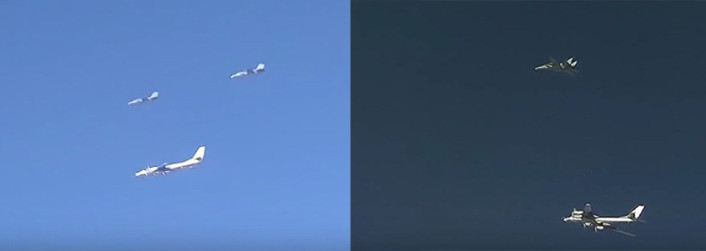Turkey has played a critical role in Russia’s economy, but also in its diplomatic and geopolitical strategy. Now Russia and Turkey, already at odds over the fate of Syrian president Bashar al-Assad, may have irreparably damaged their relationship. But Russia may be getting needed diplomatic support from China and new military assistance from Iran.
The previous post in our Putin in Syria column can be found here.
Turkey has played a critical role in Russia’s economy, but also in its diplomatic and geopolitical strategy. Now Russia and Turkey, already at odds over the fate of Syrian president Bashar al-Assad, may have irreparably damaged their relationship.
In light of Russia’s illegal annexation of Crimea and its invasion of eastern Ukraine, Moscow has had to struggle with a major strategic obstacle — its natural gas pipelines that supply Europe with energy and Russia with cash run through Ukraine, making it impossible for Russia to full control Ukraine’s supply of natural gas. The solution proposed for nearly the last two years has been to fast-track projects that would build pipelines from Russia, through Turkey, and on to southern Europe — likely through Greece.
But now those pipeline projects are on hold, potentially cancelled forever, and the economic impact of new Russian sanctions against Turkey could bite both economies deeply as we reported yesterday:
But Russia may be getting needed diplomatic support from China and new military assistance from Iran.
Today, Chinese Foreign Ministry spokesperson Hua Chunying said that China supports Russia’s mission in Syria. TASS reports:
“We have always supported the efforts of various countries, including Russia, to ensure international security. As for Russia’s strikes against terrorist organizations in Syria, we have also expressed our support previously and noted that Russia carried out the fight against terrorist organizations in Syria at the invitation of the government of this country,” the diplomat said.
“We have always supported anti-terrorist actions, which conform to international law, and also the ones approved by the government of a particular country,” Hua Chunying said.
It’s not clear how China’s support on a diplomatic level will translate into more direct support. China has made new trade deals with Moscow since Russia’s increased international isolation over the crisis in Ukraine, but those deals have not been particularly large or favorable to Russia. Despite quietly standing with Russia on issues like Syria, China has not vocally supported the Assad regime or given any obvious tangible material support to Assad’s efforts. Some Chinese companies, however, have cut deals in Syria. Telecom giant Huawei, the same company that helps the Iranian regime track cell phones (something which is deeply concerning for Iran’s pro-democracy activists), has recently signed a contract to provide communications equipment and support to Syria.
Iran, Assad’s biggest ally in the region, seems eager to supply new military assistance which appears to be well coordinated with Moscow. A Kuwaiti daily news outlet, reportedly one with close ties to Moscow, reports that two Iranian jet fighter squadrons could be deploying to Syria and could be working close with Russia’s air force. Now Lebanon reports:
“The Iranian participation [in the Syrian conflict] is headed for more advancement with preparation for the arrival of two fleets of Iranian planes,” sources in the Damascus joint operations room of the “4+1” military coalition of Russia, Iran, Iraq, Syria and Hezbollah told Al-Rai’s newspaper’s chief international correspondent, Elijah J. Magnier.
The sources added that Russian-manufactured Sukhoi jets would be deployed to the Tiyas (T4) airbase east of Homs after Iranian engineers finish preparations at the facility, which is near the Al-Shayrat base where Russia already plans to begin operating from.
“Iran and Russia have agreed that Moscow will perform all repair operations needed by these combat fleets along with provision of the necessary ammunition and the development of the launch systems of these Iranian planes,” the sources added.
Iranian jets have already been seen escorting Russian jets during bombing missions over Syria:

Watch this video of Iranian F-14 Tomcats escorting a Russian Tu-95 bomber during air strike in Syria
Something really interesting details have been exposed by the material released by Russia's MoD lately. Indeed, as you can see in the video below, IRIAF (Islamic Republic of Iran Air Force) F-14 Tomcat interceptors escorted Russian Air Force Tu-95 Bear bombers flying in Iranian airspace during their 9h 30mins missions (from Engels airbase and back, along the Iraq-Iran-Caspian Sea 6,500 km-long corridor) against terrorist targets in Syria.
Russia is gambling that their current core group of allies are enough to support its efforts in Syria, but the question remains whether Russia’s mission in Syria is worth the price tag of losing a key partner in Ankara.
— James Miller